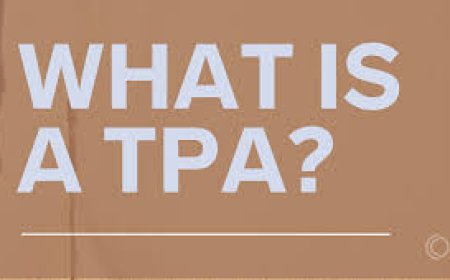Transforming Nursing Education Through Practical Learning
Blog about Transforming Nursing Education Through Practical Learning

The landscape of nursing education is undergoing a significant transformation. Traditional methods of instructionwhile foundationalare no longer sufficient to meet the demands of a rapidly evolving healthcare environment. Todays students need not only theoretical knowledge but also real-world, applicable skills. One of the leading models to support this shift is capella flexpath assessments, a format that offers a unique blend of flexibility and rigor for aspiring and practicing nurses alike.
Capella FlexPath is built around competency-based education, a structure that emphasizes the demonstration of practical skills and applied knowledge over rigid timelines and test-based evaluations. For nurses balancing demanding schedules or already working in the healthcare field, this system provides the perfect balance between accessibility and academic integrity. The assessments are designed to mirror real nursing scenarios, allowing students to apply what they learn immediately in clinical environments.
The flexibility of FlexPath is particularly valuable for adult learners. Instead of adhering to fixed terms and weekly assignments, students can move forward once theyve mastered the material. This empowers learners to accelerate through familiar content and spend more time on challenging concepts. The emphasis remains on learning outcomes and competency, not seat time or memorization.
Beyond convenience, this format ensures that graduates are well-equipped for modern nursing roles. Assessments focus on developing professional judgment, critical thinking, cultural competence, and the ability to adapt to diverse clinical settings. Students are asked to solve problems, create care plans, and evaluate patient outcomesskills they will use every day on the job.
Personalized and Practice-Based Assessment
What sets FlexPath apart from traditional models is its focus on authentic, reflective, and iterative learning. Each assessment challenges students to engage with core nursing concepts through real-life case scenarios, helping them internalize the principles rather than merely recall facts for a test. This format deepens understanding and sharpens professional judgment.
A key feature of these assessments is their personalization. While students must meet specific academic objectives, they can often tailor their responses to their own professional goals or areas of clinical interest. Whether focused on pediatrics, community health, mental wellness, or acute care, the assessments accommodate a wide range of nursing specialties. This helps learners maintain engagement and fosters deeper investment in the learning process.
Instructors also play a critical role in guiding this journey. Through detailed feedback, they help students identify areas of improvement and refine their thinking. The feedback loop is designed not as a punitive measure but as a tool for growth. Students can revise and resubmit work based on feedback, creating a culture of continuous learning that mirrors professional nursing practice.
The assessments often require students to work with evidence-based resources, reinforcing best practices and the importance of staying current with medical literature. This ensures that students are not just developing academic skills but are also learning how to be lifelong learnersan essential trait in healthcare professions.
Real-World Integration and Clinical Judgment
FlexPath emphasizes the importance of bridging the gap between theoretical knowledge and real-world nursing. Every assessment pushes learners to think like practicing nurses, applying clinical frameworks to address patient challenges, develop interventions, and advocate for quality care. The ability to connect theory to practice is fundamental to safe and effective nursing, and FlexPath is designed to nurture this connection at every level.
A strong example of this approach is seen in nurs fpx 4000 assessment 2. In this task, students explore the role of the nurse in coordinating care across the healthcare continuum. The assessment encourages learners to identify patient care gaps, propose solutions, and implement evidence-based strategies to support better outcomes.
This assignment might involve managing care transitions, improving communication among interdisciplinary teams, or designing interventions that reduce hospital readmissions. To succeed, students must demonstrate an understanding of health systems, patient advocacy, resource management, and the nurses pivotal role in care coordination.
What makes this assessment particularly valuable is that it replicates the dynamic and multifaceted nature of actual nursing work. Nurses are often at the center of healthcare teams, ensuring that care plans are followed, that patients understand their instructions, and that everyone involved is working toward the same health goals. The ability to coordinate care efficiently and compassionately is one of the most vital skills a nurse can possessand this assessment helps learners build it.
By applying what theyve learned in a structured yet flexible academic setting, students are better prepared to handle the unpredictability and intensity of clinical work. They learn how to evaluate outcomes, adjust plans, and communicate clearlyall while respecting patient preferences and ethical boundaries.
Supporting Professional Development and Leadership
Beyond clinical tasks, FlexPath also encourages students to think about their professional growth and future roles in nursing. Many assessments are designed to cultivate leadership, collaboration, and systems thinkingskills that are becoming increasingly important in todays complex healthcare environments.
Students are often asked to evaluate their own learning, articulate their goals, and create professional development plans. This kind of reflection reinforces accountability and helps learners identify the pathways they want to pursuewhether thats bedside care, nurse education, administration, or advanced practice.
FlexPath also emphasizes the importance of advocacy. Nurses are taught to stand up for patients, fight for equitable care, and challenge policies that may hinder patient outcomes. These principles are built into assessments that deal with ethics, cultural competence, and interdisciplinary collaboration.
By combining academic content with leadership principles, FlexPath fosters a generation of nurses who are not only competent clinicians but also change agents in their communities and institutions. This aligns with the modern vision of nursing as a profession that drives quality improvement, health equity, and patient empowerment.
Conclusion
In an ever-changing healthcare landscape, nurses must be agile, skilled, and forward-thinking. Traditional models of education can only take them so far. Programs like Capellas FlexPath offer a promising alternativeone that centers on competency, self-direction, and real-world relevance.
The model doesnt just prepare students to pass exams. It prepares them to solve problems, lead teams, and deliver patient-centered care with empathy and excellence. Each assessment is an opportunity to engage with the complexities of modern healthcare, build confidence, and grow as a practitioner.
A strong representation of FlexPaths effectiveness is seen in nurs fpx 4025 assessment 3, an assignment that challenges students to design and implement effective patient education strategies. This task incorporates evidence-based resources, communication skills, and ethical awareness. It demands that students think holistically about patient care, demonstrating both technical knowledge and compassionate practice.
FlexPath is more than a formatits a philosophy. It recognizes that nurses are not just students; they are lifelong learners, dedicated professionals, and critical thinkers. Through meaningful assessments, detailed feedback, and self-paced progress, the program molds capable, reflective, and adaptive nurses ready to lead the future of healthcare.




























